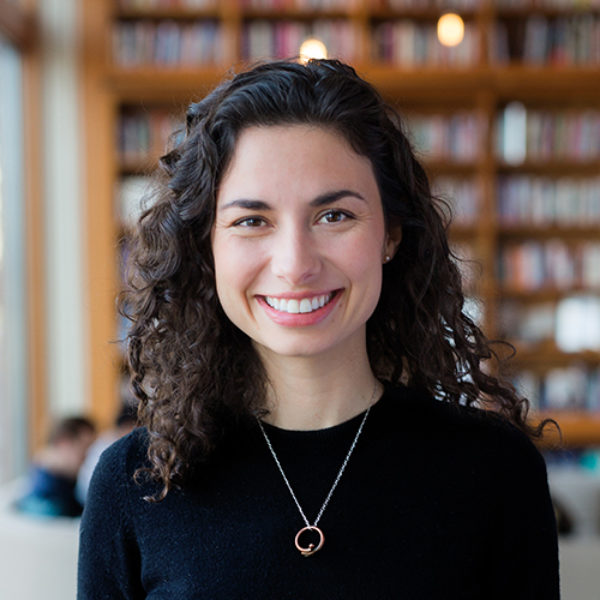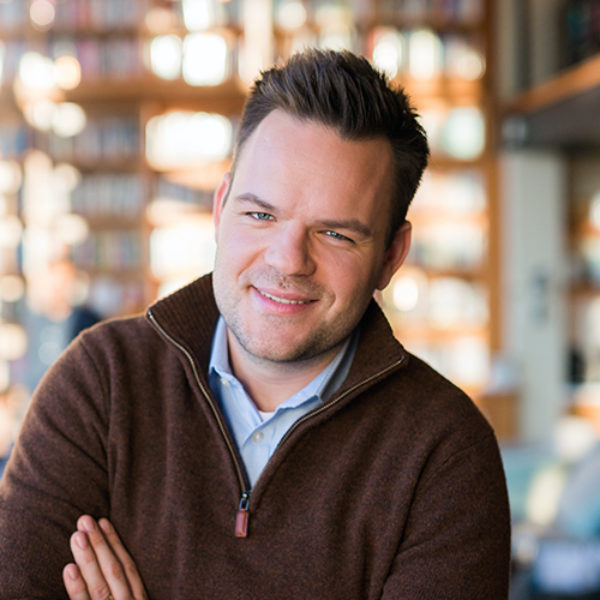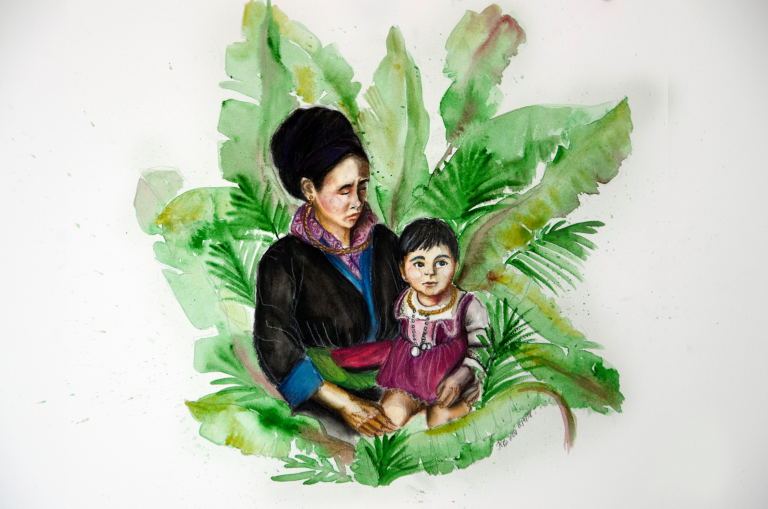How We Gather (Part 3): The Dinner Party
Giving voice to grief is a profoundly countercultural act.
Two million Americans under the age of 30 lost a parent, brother, or sister in the last two years. Yet rather than grounds for connection among young adults, such loss usually becomes a source of deep isolation, at precisely the moment when Millennials are poised to launch families of their own.
For many, the experience of loss is the most significant of their lives to date, yet they choose to keep it private. Why? What motivates the “closeted” relationship to grief, to which so many young people attest?
This question must be examined against a larger cultural backdrop, in which Millennials largely lack both implicit permission and community context to talk about the things that really matter. To openly process any formative experience, much less one of loss, takes tremendous courage. In The Prophetic Imagination, theologian Walter Brueggeman exalts the prophet Jeremiah for piercing the numbness of dominant culture by daring to grieve. The Dinner Party is today’s Jeremiah.
A community of mostly 20- and 30-somethings who have experienced significant loss, The Dinner Party brings words and company to the sadness, anger, joy, relief, and everyday life that follows. Throughout the U.S. and beyond, hundreds of hosts welcome strangers into their homes, all of whom have lost loved ones like parents, partners, and siblings. Starting with a potluck dinner and conversation, the community deepens month after month as strangers become friends through mutual care and healing.
Here, healing is inseparable from the creation and protection of sacred space. The Dinner Party is neither a fluorescent-lit church basement nor a social worker-led support group. Instead, hosts offer a personal space where participants can show up and be fully themselves. Homemade food, candles, and a warm welcome at the door invite people to feel that this is where they belong.
But sacred space is more than a warm environment. The Dinner Party team recognizes the enormous emotional and even spiritual responsibility that hosts bear. They connect with leaders before their first gathering, framing expectations and training them to avoid fixing, advising, or categorizing grief.
Sam Payne, a mathematics professor, lost his father to suicide when he was 29. Six years after making the journey east to New Haven from California, he heard about The Dinner Party on NPR and it sounded like something of which he would like to be a part. Sam found that preparing with the Dinner Party team members meant he “didn’t have to start from scratch” in conceiving of a space where it felt natural and comfortable to talk about loss.
“My peers have trouble relating to what I’ve gone through, so it is cathartic to be with others who get this aspect of what I’m living with. We all show up with pent-up emotions and get to share the strong and complicated feelings we have. It feels healing and transformative to be together.”
Fellow host Rachel Flynn, a rare San Francisco native, lost her step-brother Hal in 2014 — also to suicide, after a long battle with mental illness. Rachel was inspired to open her heart and home to others after witnessing her father speak openly about Hal’s life and death. For Rachel, the dinners are a powerful experience to facilitate.
“It feels like a big honor that this is something I can do for other people. I can cook! I can put together a really nice table setting and make people feel warm and welcome and included. I can manage people who are going on too long and draw out people who are shy. I have something meaningful to give.”
Since its informal beginning among five women in 2010, The Dinner Party has accrued significant experience and resources to help navigate the vicissitudes of a vulnerable, open hearted community. One host reflected on how the organization supported her when a participant with “less than stellar listening skills” threatened the sanctity of her group:
“As a host, I struggled to facilitate. As a participant, I struggled to share. Taken aback, my co-host and I reached out to our Dinner Party contact, who shared ideas and made it clear that she trusted our judgment and supported us no matter how we decided to handle the situation. She also made room for further communication and, most meaningfully to me, passed on the transcript of a webinar the Dinner Party team had held with Karen Erlichman from the Center for Courage & Renewal on ‘The Art of No.’ Talking through the process made me value this space even more. It made me want to do the work to be sure that our space is one where participants are listened to.”
The Dinner Party’s mission is to transform life after loss from an isolating experience into one marked by community support, candid conversation, and forward movement. Our conversations with Dinner Partiers reveal that while it is the experience of loss that pushes them to seek connection, they return because they can bring so much else to the table too.
This might explain why The Dinner Party has sparked the interest of major national media and why the organizers field regular inquiries from people outside their stated population group. It turns out that Millennials are starving for spaces of meaning and connection in general, where they have permission to bring their whole selves to the table. Our cultural numbness to grief means that experiences of abuse, discrimination, displacement, and illness are also isolating, as are the personal spiritual crises of an increasingly unchurched generation.
Thankfully, organizations like those profiled in How We Gather, are beginning to stem the tide of isolation. Yet the Dinner Party remains unusual because it specifically invites participants to give voice to experiences that are otherwise culturally silenced. How might this subversively humanizing model inspire a broader cultural shift toward the creation of sacred spaces, where separating silence is transformed into life-giving connection?
Dinner Partiers could be the forerunners of such transformation. Co-founder Lennon Flowers, who was profiled by Courtney Martin for On Being in 2014, describes a possible future in these words:
“We foresee a day in which Dinner Parties are as pervasive as AA meetings, and as culturally acceptable and readily accessible as yoga and meditation classes: a day in which young people who have experienced loss are recognized not as objects of pity, but as better listeners and better leaders, characterized by profound empathy, resilience, and agency.”
As young people cultivating ritual spaces of healing in the face of mortality, and developing as listeners and leaders of depth, it is hard not to wonder about the religious self-understanding of Dinner Partiers. Many are unaffiliated, yet they invoke religion in their descriptions of the Dinner Party community.
Take Rachel, who grew up in a Reform Jewish household and at one point hoped to become a rabbi. She loved her Jewish upbringing and summer camp, but has since struggled to find a Jewish community that embodies the essence of these childhood experiences.
“What I loved about being part of our Jewish community was that some people were really wacky — not people I’d necessarily choose to be with, but more like a family. Over the years, I built a relationship with them. That’s how I feel about The Dinner Party.”
Sam has a meditation practice and studies the Buddha’s teachings, but doesn’t describe himself as Buddhist.
“The Dinner Party reminds me of my meditation group in San Francisco,” he says. “In both spaces, there’s an immediate feeling of gratitude. I know that someone has generously opened their home and made the space ready, so everyone shows up with the intention of this being a special time. It’s a time to be honest, to be together, and to be safe. We’re here to listen and acknowledge, nothing more.”
The simplicity of that offering — listening and acknowledging, gratefully, together — is its profundity. It is also the reason that The Dinner Party may grow into a paradigm-defining model of sacred space for unaffiliated America. Yet such growth will require more and more of us to engage in the task that Walter Brueggeman describes as prophetic ministry:
“To nurture, nourish, and evoke a consciousness and perception alternative to the consciousness and perception of the dominant culture around us.”

This burden of imagination — to nurture, nourish, and evoke an openhearted culture that listens and acknowledges, embraces the reality of death, and faces endings and beginnings bravely and together — is one we can each choose to carry, and that none of us need to carry alone. Dinner Partiers are already laying the table.
In the words of one:
“It’s about feeling other people are helping me carry my burden and in exchange I take on some of theirs, which is always lighter than my own.”
About How We Gather
America is changing. Millennials are less religiously affiliated than ever before. Churches are just one of many institutional casualties of the internet age in which young people are both more globally connected and more locally isolated than ever before. Against this bleak backdrop, a hopeful landscape is emerging. Millennials are flocking to a host of new organizations that deepen community in ways that are powerful, surprising, and perhaps even religious. With this monthly series, we invite you to join us in considering how Millennials are changing the way we gather:
»Part 1: The Theology of CrossFit
» Part 2: SoulCycle as Soul Sanctuary
» Part 3: The Dinner Party



Share your reflection